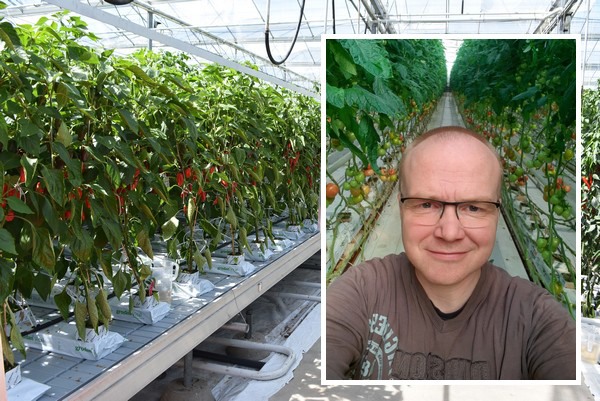Your new, shiny and high-tech greenhouse is all built up and installed, and even though it might have been quite a project, it unfortunately still doesn't mean your crop will be an instant success. Growing is taking care of living plants, and that is quite a challenge. "The first year of the cultivation always comes with unexpected challenges", says Wilfred van den Berg. As a consultant specialised in setting up new companies, he talks us through the most common mistakes."Thinking your season through beforehand is of vital importance for your crop."

After having worked at various floral and vegetablecompanies, Wilfred decided over 10 years ago to start helping international growers set up their companies. Ever since, he's been active in Asia and Europe mainly. "As soon as the greenhouse is ready, I'm ready to start as well", he says. "That is to say, when the proper equipment is bought. Sometimes we see that when the end of a building project is near, investors keep their hand on their wallet since the total cost of the project becomes clear. Although that might seem like a good way to save money, it also often results in a penny-wise, pound-foolish situation: when you save on important systems or units, you will eventually miss out on extra production, resulting in a lower ROI."
"Yet the start of a company is very important - not only for the knowledge on the crop being shared, but also for setting up your business", Wilfred continues. "Labor for example is often being thought of easily, but especially planning the labor is a serious challenge. It's important to get that done right from the start. Adjusting work schedules and work ethics in a company is harder when everybody is used to a certain situation."
Clear goals
However, even with all the equipment in place, the goals of a crop cycle should be clear. "Realizing Dutch yield because you have Dutch equipment is simply not possible. You have to work with what is available and what is possible. Of course the sowing, grafting and transplanting on the rockwool pot is of vital importance for the complete season, and I help growers make sure this is done correctly - and explain them how this is done. Then filling up the substrate slabs with water, tarnsplanting them on the slabs and drying the slabs in is the next step. By starting your crop correctly the first steps are taken, yet there's much more to it."
Thinking the season through
So the plants are growing - let's see what's up next. Wrong! You'll be too late to respond to unexpected situations. "Especially when you don't have much experience in horticulture, thinking the season through might be difficult - but it is essential. For example, your stock of fertilisers, packing materials, crop protection. Dutch growers can get their hands on these products in a few hours, yet internationally you might have to deal with a delivery time of two to six weeks. Ordering when you're opening your last pack of fertilisers might cause a shortage."
The same goes for starting the IPM. "When you work with Integrated Pest Management, which is something most modern companies do nowadays, you have to build up your population in time to be able to make it a success. In addition, if there still is a plague popping up, you cannot just use any chemical solution because you might disturb your IPM. You have to think before you act."
During the crop
Then the cultivation is ready to commence. Wilfred explains how he not only helps install the plants and the greenhouse, but also educates the people at the facility. This goes for the strategies on watering, lighting, taking care of the bumblebees, heating, ventilating, screening and on the crop works. "In setting up a company it is important for me to not just teach the workers how to do the job, but to train the managers, since they will have to educate new employees on the crop works in later years. Hanging the hooks, twisting the plants, leaf cutting, buckling, pruning, lowering - these activities will have to be done year after year, and the managers will have to educate new employees in the years to come. The same goes for harvesting, of course: since plants are the lungs of the greenhouse, they need to be treated as such - not just in the first cultivation, but also in the years to come."
Following the cultivation itself and educating on the water and lighting strategy, also the post-harvest and logistics can be set up following proven successful strategies from the Netherlands. Then there's the demolishing of the crop at the end of the season and cleaning the greenhouse for the new season - also a part that needs to be thought through and cannot just be started with, especially with all the pests and viruses that require thorough cleaning."
With all this in mind, Wilfred explains how it often takes two years for a company to set up: one year in what he takes the new team by the hand, and one year in which they can do more on their own and he functions more as a consultant. "That's also when most mistakes are made: what we see in horticulture is that a gut feeling will not bring you far, and experimenting with a crop can end up very badly. Learning to read a plant can take years, but creating a proper business plan and sticking to it can be done in a shorter time. And that's the basis of a greenhouse company."
Wilfred is currently available for a new project.
For more information:
Zelpa
Wilfred van den Berg
info@zelpa.nl
